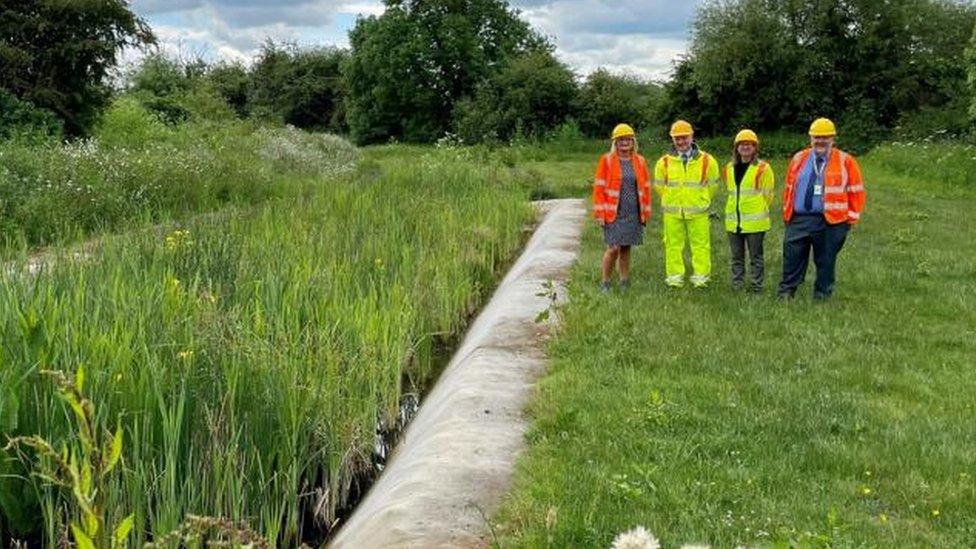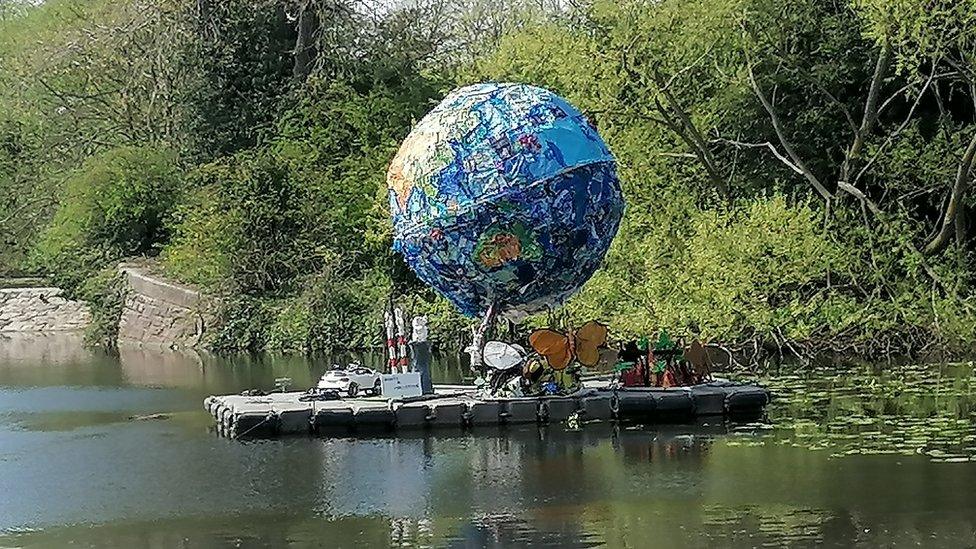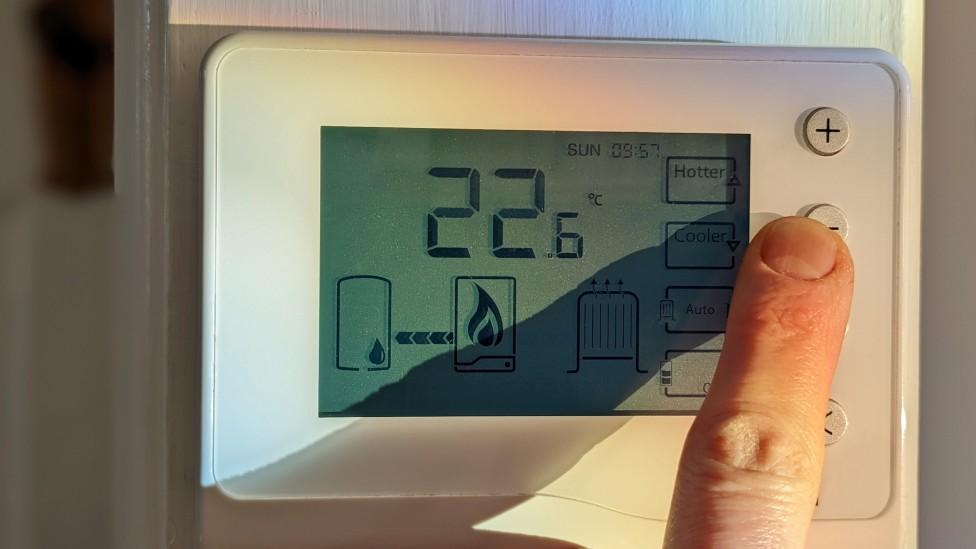New Leicestershire scheme uses plant to clean polluted water
- Published

A new scheme has been set up at Leicestershire County Council's Croft highways depot
Plants and artificially created salt marshes are being used to clean oils, diesel and chemicals in water from road gullies in a new environmental scheme.
Leicestershire County Council has set up a "living water" operation in Croft to treat water it collects from drains.
A weir system will drain the water through straw before it is passed to ponds where salt marsh plants remove the remaining pollutants.
Councillor Ozzy O'Shea said it would protect the environment and save money.
The council said straw is a natural filter which removes a high percentage of oils, hydrocarbons, salts and silt, while the bacteria and micro-organisms that live in salt marsh plants can also remove pollutants.
After this filtering process, the clean water will flow into Broughton Astley Brook which feeds into the River Soar.
Solid waste such as stones, sand, metals, and plastics will be removed and recycled, with some being used in land restoration projects.
Mr O'Shea, cabinet member for highways and transport, said: "Cleaning this water using completely natural, chemical-free processes not only prioritises protecting our Leicestershire environment while maintaining our drainage system, but it also saves money for the council by dealing with this process ourselves."

Follow BBC East Midlands on Facebook, external, Twitter, external, or Instagram, external. Send your story ideas to eastmidsnews@bbc.co.uk, external.
- Published21 April 2022

- Published18 April 2022
